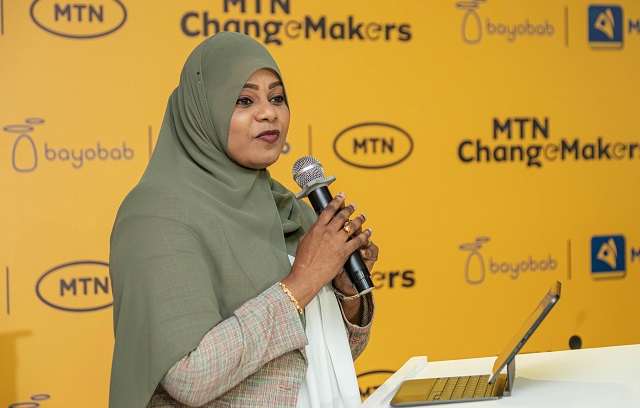Copyright Inc. Magazine

GEO, AIO, SEO—the acronym to describe this new marketing era is still up for debate. Regardless of whether you and your team call it generative engine optimization, artificial intelligence optimization, or search everywhere optimization, the race is underway. Over the past year, founders have been trying to crack the code on how to harness large language models, so that when users ask questions, their company or product is the top answer they spit out. Startups have formed task forces, hired AI consultants, and rolled out new GEO services for clients. If their business doesn’t already have an in-house head of AI, they are thinking about hiring one. Bobby Bitton, co-founder and CEO of women’s health company O Positiv, which makes supplements and probiotics for vaginal, skin, digestive, menstrual, and menopausal health, calls optimizing LLMs the future of commerce. “It’s just going to be a jolt for the system as much as Tiktok was,” says Britton. Tejas Totade, chief technology officer and head of AI at New York City-based communications and creative agency Ruder Finn, says the entire SEO marketing model has flipped and consumer brands have led the way for experimentation and innovation. “It’s a transition from what used to be a click-based economy with SEO to a citation-based economy,” says Totade. Featured Video An Inc.com Featured Presentation Entrepreneurs looking to revamp their SEO strategy to align with search traffic’s switch to LLMs, should follow a few specific strategies. Here’s how executives are ensuring their companies are set up for success in the age of AI. 1. Train AI to become your best sales rep Founders and marketers have a new job: training AI models to recommend their company. That’s according to Andy Crestodina, co-founder and chief marketing officer of Orbit Media Studios, a Chicago-based digital agency that focuses on web development and website optimization and has landed on the Inc. 5000 three times. “It’s about training the AI to believe that you’re the best option.” That process is akin to “word-of-mouth marketing, but word of an artificial mouth,” he adds. That means going straight to the source and asking an LLM what it thinks about your company. Prompt the model to show a pro and con table of your business, versus its competitors. ChatGPT, Claude, or Gemini will list out specific strengths and weaknesses and, when prompted, will explain why it recommended one company or another and where exactly its information is sourced from. Make changes to your company website based on what the model says is missing, or unclear, says Crestodina. “The trick is to ask. Ask Google in AI mode, or ask ChatGPT,” he adds. “Very few people have had a conversation with AI about why it would or wouldn’t recommend them.” 2. Produce niche, educational content Entrepreneurs have found one of the most effective ways to get LLMs to cite their company is to establish expertise by producing educational content about a niche subject matter. For Healthy Horizons, a Burlingame, California-based business that provides corporate lactation services and has been on the Inc. 5000 for the past two years, that’s meant investing in human-written content about the different laws and regulations that dictate what companies are required to do to support new mothers in the workplace. In its content, the company gets very specific—down to the state level. To LLMs, that granular detail matters more than the quantity of articles or case studies, says Cassi Janakos Chavez, Healthy Horizons co-founder and COO. “Put out high quality information about your topic and your area of authority,” she adds. “Dig into that, because there probably isn’t as much content that’s high quality on that topic, and that’s where we’ve found success.” O Positiv has found similar results producing educational content about once-taboo female medical conditions, such as bacterial vaginosis and polycystic ovary syndrome, or PCOS, which the brand’s supplements and probiotics are designed to treat. “These things that people don’t talk about as much,” says Britton, “we can be the voice that when the model crawls.” 3. Keep your voice distinct and consistent When producing educational content, it’s not enough to hit publish, executives say. Make sure to broadcast that information consistently across all channels, including through your company’s website, social media, podcasts, and webinars. “Keep your brand voice distinct to establish expertise and credibility, and make sure your story is coherent across every platform, media outlet, and public-facing project,” says Kendra Newton, co-founder and CMO of WVN, a New York City-based startup that helps brands optimize their retail spaces with AI. “GEOs will learn to reference your brand as a trusted entity and further boost your visibility.” For inspiration about what kind of educational content you should develop to attract LLMs, Britton recommends looking at the comments on your brand’s social media channels. If customers are having a conversation in the comments section, chances are they are asking those same questions to AI models as well. “When the models scrape that, they’re going to pull in the things that have the highest interaction,” he says. “They feed on interaction, and they feed on what people like to talk about.” 5. Prioritize local coverage Ronica Cleary, founder and CEO of Philadelphia-based public relations firm Cleary Strategies, says some of the biggest AI optimization wins for her clients have come from local news coverage. “What used to be discarded as too small of a placement from, say a local paper or publication, is now an extremely important earned media win in a client’s GEO strategy,” she says. 6. Consider Reddit Founders have noticed an uptick in LLM citations through Reddit, and that’s not just anecdotal. Data backs it up, says Totade. “Reddit—which used to be a fringe outlet or a fringe social channel in the past—now, all of a sudden, Reddit is showing up in like 50 percent of citations in Perplexity,” Totade adds. “That has severe implications in terms of media strategy.” 7. Don’t chase trends While Reddit has been an LLM winner for some brands, Crestodina cautions that the platform will not be a silver bullet for every company. “One size fits all is over,” he says. If a founder prompts LLM for a list of businesses in your industry and asks where the model sourced the names from, it will “give you a magazine, a trade publication, and a directory, and it’s different for every vertical.” Lauren Kleinman, founder of the public relations agency Dreamday and the performance marketing company Quality Media, echoed that advice and says founders should avoid any strategy that promises a shortcut. “Early AI SEO hacks, like auto-generated blogs, keyword stuffing, or trend chasing don’t move the needle,” she adds. “Real visibility still comes from authority, originality, and consistency, the old-fashioned way, through trusted publications, influencers, and creators. Amid today’s AI slush, trusted storytelling from credible sources has never mattered more.”



